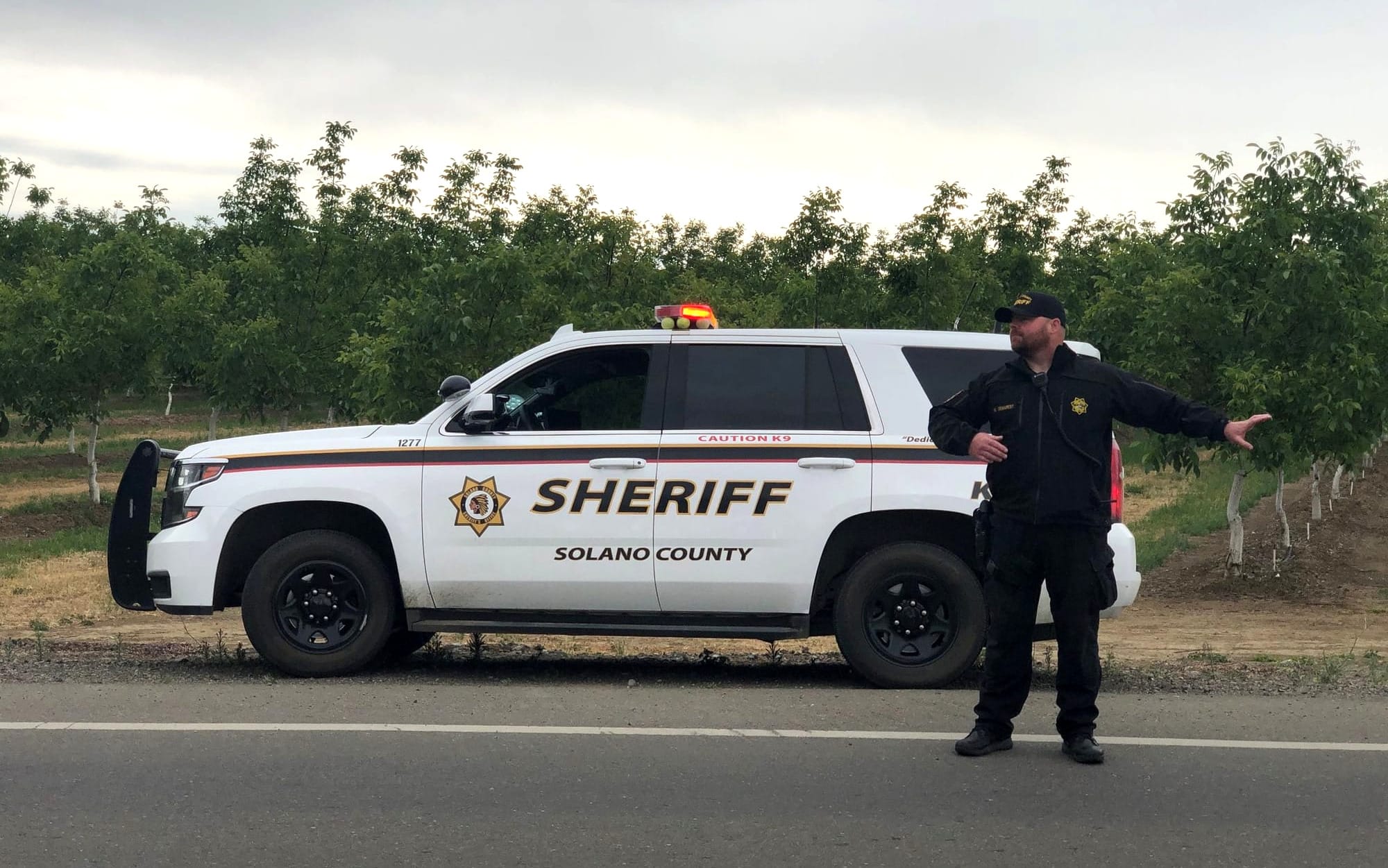VALLEJO – A court case filed by the California Department of Justice to enforce ongoing Vallejo police reform work was reassigned to a new judge last week after the Justice Department called for the previous judge’s recusal, according to court records.
Solano County Superior Court Judge Stephen Gizzi said in a written response to the Justice Department that he would not recuse himself and that he did nothing wrong when he shared a Vallejo Sun article about the case on LinkedIn. But the Justice Department reiterated its belief that Gizzi had violated judicial ethics and objected to a hearing scheduled for Tuesday.
On Thursday, the case was reassigned to Presiding Judge Alesia Jones and Tuesday’s hearing was canceled. The next hearing is scheduled for March. Court filings do not indicate why the case was reassigned.
Gizzi had already indicated that he may not approve or enforce the stipulated judgment between the Justice Department and the city of Vallejo and that he found portions of it to be vague, contradictory or unsupported by law. Tuesday’s hearing was intended for the Justice Department to argue why Gizzi should approve and enforce the ruling.
The contentious court fight grew out of the Justice Department’s yearslong effort to reform the beleaguered Vallejo Police Department. Following a series of scandals in 2019, the Justice Department reached an agreement in 2020 for Vallejo police to complete 45 reforms in the next three years. By last year, more than half the reforms were still incomplete.
In October, Attorney General Rob Bonta announced that the Justice Department would file a stipulated judgment in Solano County Superior Court for Vallejo police to complete the outstanding reforms plus other new requirements, such as new restrictions on when police could stop, detain and search people.
The case was assigned to Gizzi. In his first order, Gizzi objected to the Justice Department’s plan for the court to oversee the progress of Vallejo police reforms for the next five years, saying that the Justice Department had never discussed the plan with the court.
He also questioned whether there was legal support for the plan, questioned the legality of some of the proposed reforms, and said that he was uncomfortable in a role mediating disputes between the city and the Justice Department.
The Justice Department responded in December, arguing that the arrangement of a court overseeing reforms was common and that Gizzi had limited discretion to refuse to enforce the judgment, which is essentially a contract between the city and the Justice Department.
In response to Gizzi’s assertions that some aspects of the judgment, such as new restrictions on stops and searches, violate existing law, the Justice Department argued that the police department voluntarily agreed to the new restrictions.
In a separate filing, the Justice Department also called on Gizzi to recuse himself because he reposted a LinkedIn post critical of the Justice Department’s handling of the police reform case.
The post was shared by David Blake, a retired police officer who operates a consulting firm that provides evaluations of police practices, including the use of force in the Vallejo police shooting of Willie McCoy. The post linked to a Vallejo Sun article about Gizzi’s order and attracted several comments critical of the Justice Department.
The Justice Department argued that the post constituted an ex parte communication and a violation of rules which require judges to remain impartial and prohibit them from publicly commenting on court proceedings.
In his response, filed on Jan. 12, Gizzi said that he read the Vallejo Sun’s article regarding his Nov. 9 order after he saw it on LinkedIn and found that it “fairly summarized” his order and “did not appear to favor one party over the other or advocate for a certain position.” He said that he did not notice any comments attached to the post.
Gizzi said that he called a judicial ethics hotline and received an opinion that he did not violate any judicial canon and was not required to recuse himself. He also removed the link to the Vallejo Sun article from his LinkedIn page, “to preclude further distraction in this case.”
“I am not predisposed to rule in any particular manner in this case,” Gizzi wrote. “I do not believe that my recusal would serve the interests of justice.”
In a statement filed in court the same day, the Justice Department objected to the upcoming hearing before Gizzi and once again called for Gizzi to be disqualified and for a new judge to be assigned. On Thursday, the case was assigned to Jones and Tuesday’s hearing was vacated.
Jones worked in the Vallejo City Attorney’s Office for 14 years and is currently the presiding judge of the court. It is unclear if Jones would keep the case permanently or reassign it to a different judge. A case management conference is scheduled for March 5.
Before you go...
It’s expensive to produce the kind of high-quality journalism we do at the Vallejo Sun. And we rely on reader support so we can keep publishing.
If you enjoy our regular beat reporting, in-depth investigations, and deep-dive podcast episodes, chip in so we can keep doing this work and bringing you the journalism you rely on.
Click here to become a sustaining member of our newsroom.
THE VALLEJO SUN NEWSLETTER
Investigative reporting, regular updates, events and more
- policing
- courts
- Vallejo
- Vallejo Police Department
- California DOJ
- Rob Bonta
- Stephen Gizzi
- Alesia Jones

Scott Morris
Scott Morris is a journalist based in Oakland who covers policing, protest, civil rights and far-right extremism. His work has been published in ProPublica, the Appeal and Oaklandside.
follow me :




